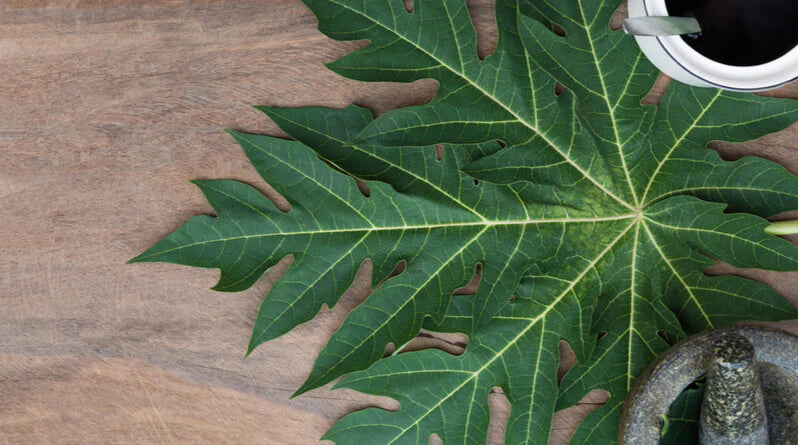Jaundice (पीलिया) is a medical condition that occurs when the liver is unable to process bilirubin properly, leading to a yellowing of the skin and eyes. While medical treatment is often necessary for severe cases of jaundice, certain herbs can help support liver health and reduce the symptoms of this condition.

What is Jaundice?
Jaundice is a medical condition in which the skin and whites of the eyes turn yellow due to a buildup of bilirubin in the body. Bilirubin is a yellow pigment formed when the body breaks down old red blood cells. Normally, bilirubin is processed by the liver and excreted in the bile, which is then eliminated from the body through feces. However, if the liver is not functioning properly, bilirubin can accumulate in the blood, causing jaundice.
Jaundice Normal Range: The normal range of bilirubin in adults is 0.2 to 1.2 mg/dL. The normal bilirubin range is higher in newborns, ranging from 1 to 12 mg/dL. As a result, Jaundice in newborns is common and often resolves on its own within a few weeks.
There are three main types of jaundice such as pre-hepatic, hepatic, and post-hepatic - with different causes, symptoms, and risk factors.
|
Type of Jaundice |
Causes |
Bilirubin Level |
Symptoms |
Risk Factors |
|
Pre-hepatic jaundice |
Increased breakdown of red blood cells, often due to hemolytic anemia or sickle cell disease |
High due to increased bilirubin production |
Yellowing of skin and eyes, dark urine, pale stools, abdominal pain |
Inherited blood disorders, infections such as malaria or hepatitis, certain medications |
|
Hepatic jaundice |
Liver damage or disease, such as hepatitis or cirrhosis |
High due to impaired bilirubin processing by the liver |
Yellowing of skin and eyes, fatigue, nausea, loss of appetite, abdominal pain |
Alcohol abuse, obesity, viral infections, exposure to certain toxins |
|
Post-hepatic jaundice |
Blockage of bile ducts, often due to gallstones or tumors |
High due to obstruction of bilirubin excretion |
Yellowing of skin and eyes, dark urine, pale stools, itchy skin, abdominal pain |
Older age, family history of gallstones or pancreatic cancer |
Diagnostic Tests for Jaundice
If you are experiencing jaundice symptoms, your healthcare provider may order various tests to determine the underlying cause. These may include:
- Blood tests: This can measure bilirubin levels and other liver enzymes to assess liver function.
- Imaging tests: Ultrasound, CT scan, or MRI can be used to examine the liver, gallbladder, and bile ducts for blockages or other abnormalities.
- Liver biopsy: A small sample of liver tissue may be removed and examined under a microscope to check for signs of liver disease.
Best Treatment of Jaundice
Jaundice treatment depends on the underlying cause. In some cases, no treatment is necessary, and the condition will resolve on its own. However, in other cases, treatment may be necessary to address the underlying cause and prevent further damage to the liver or other organs.
- Medications: If the underlying cause of jaundice is an infection or medication, medications may be prescribed to treat the condition. For example, antiviral medications may be used to treat hepatitis, while antibiotics may be used to treat infections causing the condition.

- Surgery: If gallstones cause jaundice, surgery may be required to remove them. This may involve laparoscopic or open surgery, depending on the severity of the condition.
- Liver Transplant: In severe cases of liver disease, a liver transplant may be required to treat jaundice. This involves replacing the damaged liver with a healthy liver from a donor. Liver transplants are typically reserved for cases where other treatments have been unsuccessful, or when the liver is severely damaged and unable to function properly.
- Phototherapy: For newborns with jaundice, phototherapy may be used to treat the condition. This involves exposing the baby to a special type of light that helps to break down bilirubin. The baby may be placed under a light or in a light box for several hours daily until their bilirubin levels return to normal.
- Home Remedies: Certain home remedies for jaundice, such as well hydrated by drinking water, eating a healthy diet, and avoiding alcohol and certain drugs, can help to support liver function and reduce the symptoms of jaundice.
Home Remedies For Jaundice
What to eat in jaundice? The first step in managing jaundice at home is to make dietary changes.
What food for a jaundice patient should eat? While no specific diet can cure jaundice, making certain dietary changes can help support liver health and reduce the amount of bilirubin in the body. Here are some tips for a jaundice diet:
1. Stay hydrated: Drinking plenty of water and other clear fluids can help flush toxins out of the body and prevent dehydration. Aim for at least eight glasses of water per day.
2. Eat a balanced diet: Consuming a balanced diet that includes plenty of fruits, vegetables, whole grains, and lean protein sources can provide essential nutrients and support overall health.

3. Limit fat intake: Foods that are high in fat can be difficult for the liver to process, so it's important to limit your intake of fatty foods, such as fried foods, processed snacks, and high-fat meats.
4. Avoid alcohol: Alcohol can further damage the liver and exacerbate jaundice symptoms. It's important to avoid alcohol entirely during the recovery period.
5. Consider supplements: Certain supplements, such as milk thistle, turmeric, and dandelion root, may have liver-protective effects and help support the liver's function. The supplement may be beneficial in the treatment of jaundice in adults, baby & all age groups of people.
Certain Herbs & Food For Jaundice Patients
Learn jaundice treatment food. Certain foods may help alleviate the symptoms of jaundice and promote liver health.
1. Milk Thistle herb is known for its liver-protective properties and is commonly used to treat liver diseases, including jaundice. It contains a compound called silymarin, which aids in detoxifying the liver and reduce inflammation.
2. Dandelion root has been traditionally used to treat liver and gallbladder problems. It helps detoxify the liver and improve bile flow, which can reduce the symptoms of jaundice.
3. Amla, or Indian gooseberry, is a potent antioxidant that helps remove toxins from the liver. It is also a rich source of vitamin C, which can boost the immune system and help fight off infections that may worsen jaundice.
4. Lemon Juice is a natural detoxifier that can help cleanse the liver of toxins and improve liver function. Squeeze lemon juice into a glass of warm water and consume it on an empty stomach in the morning. To enhance the flavor, add a spoonful of honey.
5. Papaya Leaves are rich in enzymes that can help improve liver function and reduce inflammation. Crush a few papaya leaves and extract the juice. Drink a tablespoon of juice twice a day to help alleviate the symptoms of jaundice.

6. Turmeric is a powerful antioxidant that can aid in reducing liver inflammation and enhancing liver function. Drink warm milk with a teaspoon of turmeric powder before bed. Add a spoonful of honey for flavor.
7. Barley Water is rich in antioxidants that can help cleanse the liver of toxins and improve liver function. Boil a cup of barley in three cups of water for 30 minutes. Strain the mixture and drink the water throughout the day.
8. Aloe Vera is a natural detoxifier that can help improve liver function and reduce inflammation. Remove the gel from an aloe vera leaf by slicing it apart. Mix the gel with a glass of water and drink it once a day.
9. Radish Leaves are rich in antioxidants that can help cleanse the liver of toxins and improve liver function. Crush a few radish leaves and extract the juice. Drink a tablespoon of juice twice a day to help alleviate the symptoms of jaundice.
10. Buttermilk is rich in probiotics that can help improve liver function and reduce inflammation. Mix a cup of buttermilk with a pinch of salt and drink it twice daily.
11. Tomato Juice is rich in antioxidants that can help cleanse the liver of toxins and improve liver function. Drink a glass of tomato juice once a day to help alleviate the symptoms of jaundice.
12. Green Tea is a natural detoxifier that can help improve liver function and reduce inflammation. Drink two cups of Namhya Green Tea daily to help alleviate jaundice symptoms.
13. Ginger is a natural anti-inflammatory that can assist in reducing liver inflammation and enhancing liver function. Drink the tea twice a day to help alleviate the symptoms of jaundice.
14. Kutki is a bitter herb that has been used for generations in Ayurvedic medicine to treat liver disorders. It helps improve liver function and reduce inflammation, which can help treat jaundice.
Herbs can be consumed in various forms, including powders,capsules, teas, or tinctures. However, it is important to consult a healthcare practitioner before using any herb for jaundice, as some herbs may interact with medications or worsen the condition. While herbs can help treat jaundice, they should not be used as a substitute for medical treatment.
Revitalize Your Liver With Namhya Liver Cleanse Tea For Jaundice
Did jaundice Get You Down? Try Namhya Liver Cleanse Tea, which is a specially crafted blend of Ayurvedic herbs like Harad, Milk Thistle, Manjishtha, and Pippali, known to nourish and rejuvenate the liver. The tea is the perfect solution for jaundice as it effectively cleanses the liver and ensures its optimal functioning. With a delicious and refreshing taste, this tea is the perfect addition to any wellness routine.

So, if you want to revitalize your liver and live a healthy life, try Namhya Liver Cleanse Tea today.


